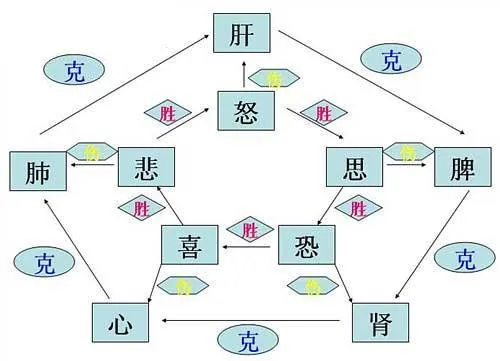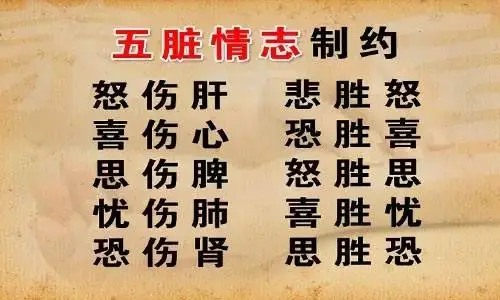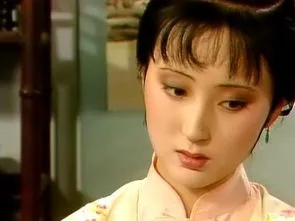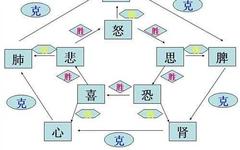Inheriting Traditional Chinese Medicine Culture and Cultivating TCM Talent
We hope more people can share this with their friends, allowing every Chinese person to learn about and understand TCM.
What are the Seven Emotions?
Traditional Chinese Medicine (TCM) considers the Seven Emotions to be joy, anger, worry, thought, sadness, fear, and shock. These are the seven types of mental and emotional activities in the human body, representing different psychological states triggered by various external stimuli.

What are the Five Organs?
The Five Organs refer to the heart, liver, spleen, lungs, and kidneys in the human body.
The term “organ” (脏, zàng) historically means to store. The Five Organs have the characteristic of “storing” essence, qi, blood, and spirit, hence they are also called the Five Spirit Organs. TCM believes that the human body is an organic whole centered around the Five Organs, which are extensively connected through the meridians to the six bowels and other tissues and organs, thus playing a crucial role in the body’s physiology and pathology.
According to TCM: joy harms the heart, anger harms the liver, thought harms the spleen, sadness harms the lungs, and fear harms the kidneys.
Firstly, excessive emotions can damage the corresponding organs:
That is, the heart is associated with joy; excessive joy can harm the heart;
the liver is associated with anger; excessive anger can harm the liver;
the spleen is associated with thought; excessive thinking can harm the spleen;
the lungs are associated with sadness and worry; excessive sadness and worry can harm the lungs;
the kidneys are associated with fear; excessive fear can harm the kidneys.
1Anger causes qi to rise, anger harms the liver
Severe anger often causes liver qi to rebel, and in severe cases, blood may follow the qi in rebellion. Clinically, this manifests as headaches, facial redness, irritability, and anger; if blood follows qi in rebellion, it may lead to vomiting blood or even fainting; if liver qi rebels against the spleen, abdominal pain and diarrhea may also occur.
2Joy causes qi to disperse, joy harms the heart
Excessive joy can cause the heart qi to scatter or the spirit to become unsettled. Mild cases may present with palpitations, insomnia, fatigue, and lack of concentration; severe cases may lead to mental disorders, mania, or symptoms of heart qi collapse, such as profuse sweating, weak breath, and faint pulse.
3Thought causes qi stagnation, thought harms the spleen
Excessive thinking leads to stagnation of heart and spleen qi, resulting in impaired transformation and transportation. Clinically, symptoms may include palpitations, insomnia, vivid dreams, mental fatigue, lack of energy, poor appetite, abdominal distension, and loose stools.
4Fear causes qi to descend, fear harms the kidneys
Excessive fear can cause kidney qi to become unstable, leading to qi sinking. Clinically, this may present as incontinence, nocturnal emissions, and weakness of the bones.
5Sadness (worry) causes qi to deplete, sadness harms the lungs
Excessive sadness and worry can deplete lung qi or disrupt its dispersing and descending functions. Clinically, common symptoms include depression, lack of energy, shortness of breath, chest tightness, and fatigue.
6Shock causes qi to become chaotic
Sudden shock can lead to instability of the heart spirit and chaotic qi. Clinically, this may manifest as anxiety, confusion, and in severe cases, mental disarray.
Moreover, the intertwining of emotions can easily harm the heart, liver, and spleen: since the heart, liver, and spleen play significant roles in physiological and emotional activities, internal emotional injuries most easily damage these three organs.
Additionally, excessive emotions can easily damage latent diseases in the organs: latent diseases refer to conditions that exist but do not show obvious clinical manifestations. The organs affected by latent diseases are those where the latent disease resides. Due to the deficiency of righteous qi in these organs, they are more susceptible to emotional injuries, making it easier for excessive emotions to damage them. For example, patients with a history of chest obstruction, diarrhea, or headaches are more likely to experience a recurrence of latent diseases when subjected to emotional stimuli.
The heart governs joy; excessive joy can disperse qi
The heart governs joy, which means happiness. We all know that we say “the heart blooms with joy,” not “the liver blooms with joy.” We also see many elderly patients with heart issues who, upon seeing their children return home, become overly joyful and may pass away from laughter. This is because excessive joy can disperse heart qi. Therefore, while joy is a good thing, excessive joy may not be beneficial.

The liver governs anger; poor liver function leads to irritability
Many women are particularly prone to anger, especially around their menstrual periods. Why? Because women are primarily governed by blood and the liver. When menstruation approaches, blood descends while qi rises, leading to an imbalance of qi and blood. When qi is excessive, it becomes fire, causing irritability. Therefore, women should pay attention to their emotional regulation before and during their menstrual periods, avoiding excessive anger and depression. Both excessive anger and depression are not conducive to normal physiological states and can lead to diseases over time.
The spleen governs thought; excessive worry harms the spleen and stomach
The spleen governs thought; “thought” refers to excessive worry. Those who frequently use their brains often have poor spleen and stomach function.
For example, many long-distance drivers suffer from stomach issues. Why? Because their occupational habits lead to blood flowing to the brain when they sit in the driver’s seat. Over time, this causes their blood to rise while the food they consume is not adequately digested, leading to diseases such as gastric ulcers and gastric prolapse. Thus, TCM states that the relationship between thought and the spleen and stomach is that excessive worry harms the spleen.
The lungs govern sadness; excessive sadness harms the lungs
The lungs govern sadness. Everyone has seen the character Lin Daiyu from “Dream of the Red Chamber”; she certainly has lung issues, as she cries incessantly. Recently, I treated an elderly man with lung cancer who said, “I don’t know why, but I feel like crying all the time.” This is because he has lung problems, as the lungs are directly related to the emotion of sadness.

The kidneys govern fear; fear scatters kidney qi
The kidneys govern fear, which is directly related to the kidneys. In “Romance of the Three Kingdoms,” when Zhang Fei shouted on the Changban Bridge, he scared a person next to Cao Cao to death. I believe that person must have had weak kidney qi. Fear causes qi to descend; there is a saying among the people that when someone is scared, they lose control of their bowels. This is because the kidneys control urination and defecation. When a person is excessively fearful, their kidney qi scatters, impairing the kidneys’ ability to hold and control, leading to incontinence.

Therefore, TCM states that the changes in emotions such as joy, anger, worry, thought, sadness, fear, and shock are closely related to the Five Organs. In fact, we see many such characters in historical novels. For instance, why did Wang Xifeng fall ill? “After plotting too much, she lost her life.” She was always scheming against others, and in the end, heaven schemed against her. Lin Daiyu cried every day, and eventually, her tuberculosis developed. In “Romance of the Three Kingdoms,” Zhou Yu, who was so young, died because of his jealousy and imbalance of emotions, always feeling that Zhuge Liang was smarter than him. It could be said that Zhuge Liang caused his death, but it was more accurate to say that he caused his own demise.
Disclaimer: The content of this article, if it involves formulas or therapies, is for reference only. Please do not use it indiscriminately. The article and images are sourced from the internet; if there is any infringement, please contact for removal.
Share this with those who care.
The more people see it, the more health there will be!
Today's Recommendations

